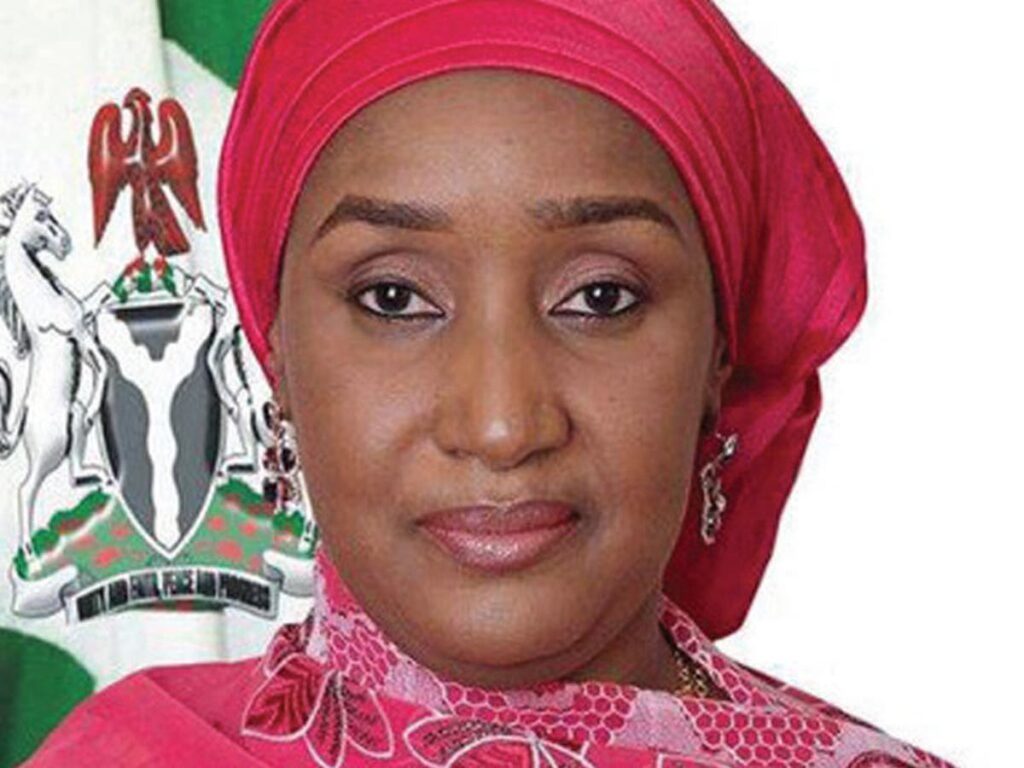Federal Government on Friday disclosed that the sum of $1 billion is being spent annually on the implementation of various components of the National Social Investment Programme (NSIP) since 2016.
The Minister of Humanitarian Affairs, Disaster Management and Social Development, Sadiya Umar Farouq disclosed this during the flagged-off training of Master Trainers of the N-Skills Programme, who are saddled with the responsibility of coordinating the training of 175 youths selected from each of the 36 States and FCT.
Under the arrangement, 6,475 youths selected from the 36 States of the Federation and Federal Capital Territory (FCT) would be trained on N-Skills across 36 States, FCT which is expected to meet the minimum technical and business requirements for certification by the National Board for Technical Education (NBTE) and enhance their entrepreneurial competences to successfully start and manage smartphone repairs and servicing businesses.
According to her, the Smart Phone Repairs was used to pilot the N-Skills programme, as part of the ongoing national aspiration of lifting 100 million Nigerians out of poverty in 10 years.
She expressed optimism that the country will get maximum value for the money and effort invested in the newly introduced N-Skills programme through the technical support and professional services provided by the consulting firm engaged by the Ministry to organize this training.
The Minister who was represented by the Ministry’s Permanent Secretary, Nura Alkali also applauded the contribution and support from various stakeholders towards the realization of Mr President’s agenda of lifting 100 million Nigerians out of poverty.
“We converge on this venue to empower our youths from different parts of the country. I am delighted to have you all here. It is a clear demonstration of your commitment to collectively address one of the development challenges Nigeria is grappling with.
“Since the inception of President Muhammadu Buhari’s administration in 2015, the Federal Government has paid more attention to promoting the plight of the poor and vulnerable in the country despite the economic slump the administration inherited.
“This informed the decision to initiate the National Social Investment Programme (NSIP) as a strategy for enhancing social inclusion. NSIP is one the largest social protection programmes in Africa with about $1 billion earmarked annually to cause positive change in the lives of the poorest and most vulnerable in the country.
“Since its introduction in 2016, the programme has impacted positively on the lives of the poor and vulnerable in Nigeria. I have personally witnessed the life-changing experiences of people who lived below the poverty line and those that are vulnerable to shocks.
“In furtherance to President Muhammadu Buhari’s approval for the restructuring of NSIP and in line with the National Poverty Reduction with Growth Strategy (NPRGS), we instituted processes to revamp the NSIP and to make it more impactful on the economy and citizens as we expand it.
“This led to the introduction of the N-Skills programme, which is based on a certification system and accreditation of training provided through the informal apprenticeship System anchored by Master Craft Persons (MCPs) and the formal training system using the Community Skills Development Centres (COSDECs).
“The programme aims to improve the quality and relevance of skills delivered using a certification system and to ease the transition of target beneficiaries to full-time skilled employment, self-employment and/or further their education. It targets marginalized and disadvantaged population, including those with primary or no-formal education.
“The N-Skills programme in line with the National Skills Qualification Framework (NSQF) for the development, classification and recognition of skills, knowledge and competencies acquired by individuals, irrespective of where and how the training or skill is acquired. It will help in bridging the gap in demand for standard and market-relevant skills.”
According to her, the programme was designed to kit/tool unemployed youths and develop their competencies to become gainfully employed.
Speaking during a media chat, NSIP National Coordinator, Dr Umar Bindir explained that the Ministry is working towards the training of about 7,000 youths.
“We are also going to expand the trade to about 30 and 40 and before we conclude, millions of youths would be trained.
“The pilot trade is the telephone repairs and building their capacity on the mobile money agents to utilize to the POS to create an account but majorly, we want to test it with repairs of telephones, changing batteries, ensuring that the installation of software works.”
On why repairs instead of manufacturing, he said: “For everything one does, there is a chain and this is part of the value chain in technology development.
“If you have people who are young and uneducated, as they commence repairs, in no time, they will start to assemble and from there, they will start making few components and they might come together to flag-off another Microsoft and other platforms because Nigerians are very adventurous, it is to start and since we start, there is no stopping us.”

